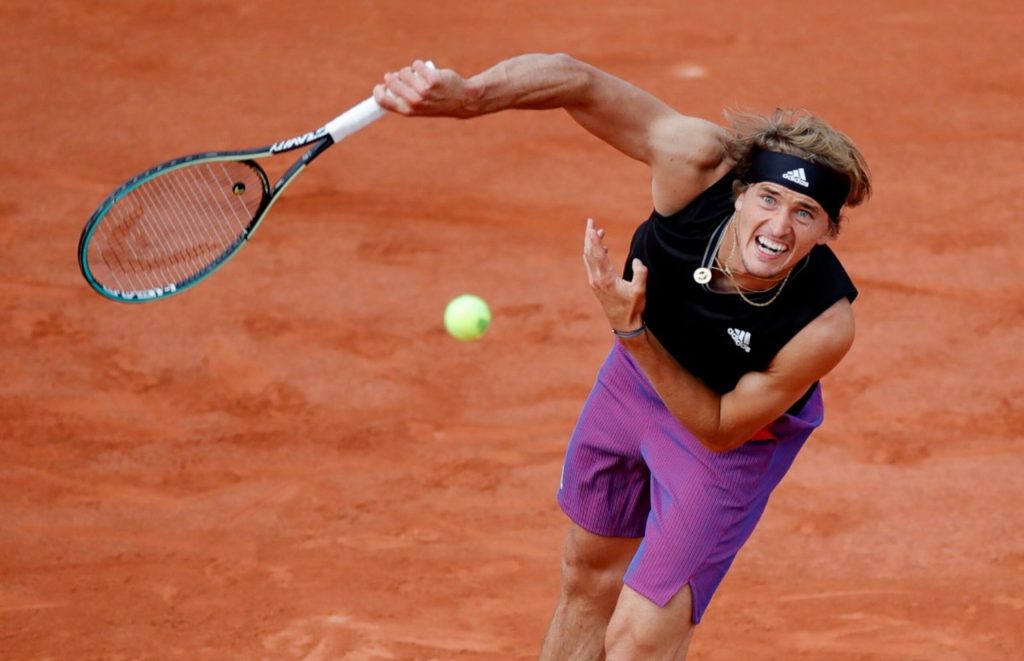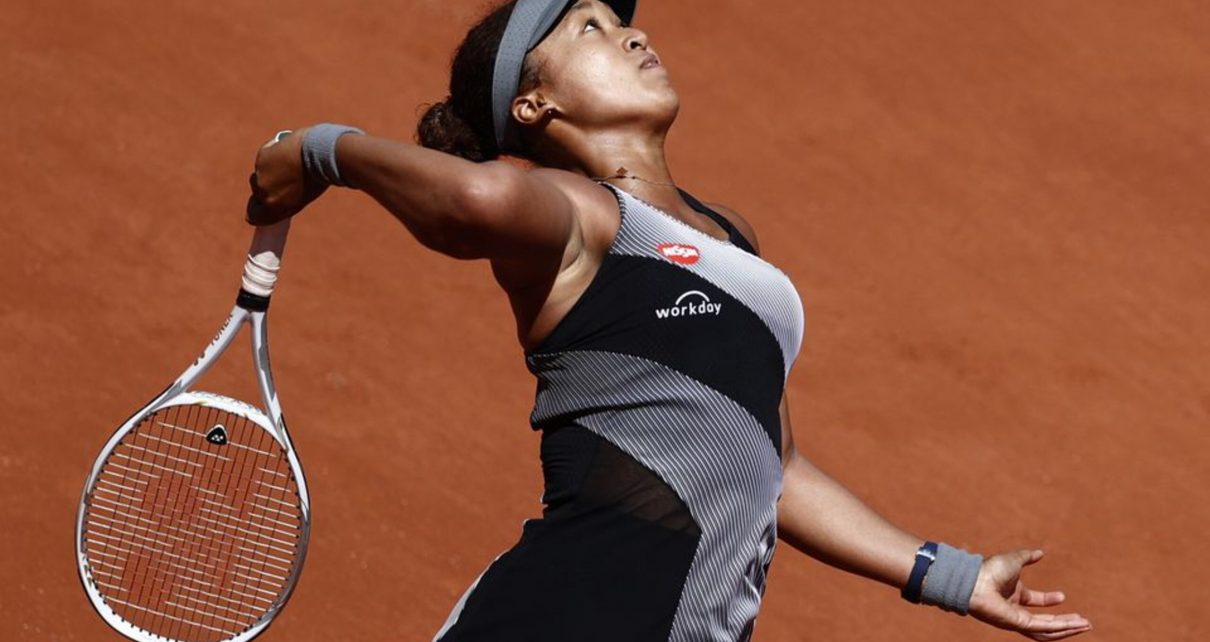‘Fine Me!’ – Alexander Zverev jokes to Umpire, references Naomi Osaka stand
Japan’s Naomi Osaka could be thrown out of the French Open if she continues to boycott post-match news conferences at the tournament, the board of Grand Slam tennis tournaments said on Sunday.
Osaka, who was fined 15,000 dollars for skipping the news conference after her first-round victory at Roland Garros, could also face suspension from other Grand Slam tournaments, the board added.

The four-times Grand Slam champion said earlier this week she would not face the media during the French Open, citing mental health reasons.
“We have advised Naomi Osaka that should she continue to ignore her media obligations during the tournament, she would be exposing herself to possible further Code of Conduct infringement consequences,” the board of Grand Slam said in a statement.
“As might be expected, repeat violations attract tougher sanctions including default from the tournament… and the trigger of a major offence investigation that could lead to more substantial fines and future Grand Slam suspensions.”
The board reminded Osaka that “a core element of the Grand Slam regulations is the responsibility of the players to engage with the media, whatever the result of their match”.
It added that “the mental health of players competing in our tournaments and on the Tours is of the utmost importance to the Grand Slams”.

Meanwhile, Alexander Zverev had words with the umpire in the French Open first round after being late for the coin toss and said he’d accept fines – like Naomi Osaka.
The sixth seed got into trouble with the match umpire before his opening-round encounter with compatriot Oscar Otte had even got underway as he strolled up late for the coin toss.
When it was pointed out to him that he was late for another coin toss, the German responded to the umpire and said that he should just accept fines throughout the tournament for being late to the coin tosses.
Zverev cited the stand being taken by Naomi Osaka, who made the pre-tournament decision to step away from her media duties during Roland-Garros, citing a need to protect herself from the impact the duties have on her mental health.
“You know how Naomi said you could fine her for every single match she is not at the press conference?” Zverev asked the umpire.
“You can fine me for every single match I’m late!”
Eurosport expert Mats Wilander believes the stand being taken by Osaka is a “bad move” and “not fair to the other players” with the Japanese star taking the stance.
“Naomi Osaka, she should have played in the ’80s,” Wilander began. “Because when I played, we never had a press conference before the tournament started.
“But then don’t go and play the tournament. Why should she be treated any differently to the other players? That’s not fair to the other players.
“So she definitely has to do it. She has sponsors; she is the highest paid female athlete in the world. So we want to see great champions win, we want to see them celebrate, but we also want to be inspired by great athletes when things are tough.
“In Japan, she is absolutely huge, maybe the biggest athlete that any country has ever produced. And they don’t get to hear her talk. So yeah, it’s really a bad move and I love what all the players are saying about it.”
Osaka has been warned that she faces a default from the French Open if she continues to shun her media obligations.
Her failure to attend saw the four Grand Slams – Australian Open, Roland-Garros, Wimbledon and the US Open – release a joint statement reminding Osaka of her obligations and warning her that she faced being expelled from the tournament.
The statement read: “Naomi Osaka announced last Wednesday on social media that she would not participate in the mandatory media interviews at Roland-Garros 2021. Following this announcement, the Roland-Garros teams asked her to reconsider her position and tried unsuccessfully to speak with her to check on her well-being, understand the specifics of her issue and what might be done to address it on site.
“Naomi Osaka today chose not to honour her contractual media obligations. The Roland-Garros referee has therefore issued her a $15,000 fine, in keeping with article III H. of the Code of Conduct.
“The mental health of players competing in our tournaments and on the Tours is of the utmost importance to the Grand Slams. We individually and collectively have significant resources dedicated to player well-being. In order to continue to improve however, we need engagement from the players to understand their perspective and find ways to improve their experiences. Every year we seek to deliver better experiences to our fans, our players and our people, and we have a long and successful track record in achievement on this count.
“A core element of the Grand Slam regulations is the responsibility of the players to engage with the media, whatever the result of their match, a responsibility which players take for the benefit of the sport, the fans and for themselves. These interactions allow both the players and the media to share their perspective and for the players to tell their story. The facilitation of media to a broad array of channels, both traditional and digital, is a major contributor to the development and growth of our sport and the fan base of individual players.
“We have advised Naomi Osaka that should she continue to ignore her media obligations during the tournament, she would be exposing herself to possible further Code of Conduct infringement consequences. As might be expected, repeat violations attract tougher sanctions including default from the tournament (Code of Conduct article III T.) and the trigger of a major offence investigation that could lead to more substantial fines and future Grand Slam suspensions (Code of Conduct article IV A.3.).
“We want to underline that rules are in place to ensure all players are treated exactly the same, no matter their stature, beliefs or achievement. As a sport there is nothing more important than ensuring no player has an unfair advantage over another, which unfortunately is the case in this situation if one player refuses to dedicate time to participate in media commitments while the others all honour their commitments.
“Finally, all Grand Slams remain committed to continually reviewing and discussing opportunities, together with the Tours and the players, to improve every aspect of the player experience, including with the media. But we consider this is only ever achieved through respectful and constructive discussions.” (LM with reports from agencies)


